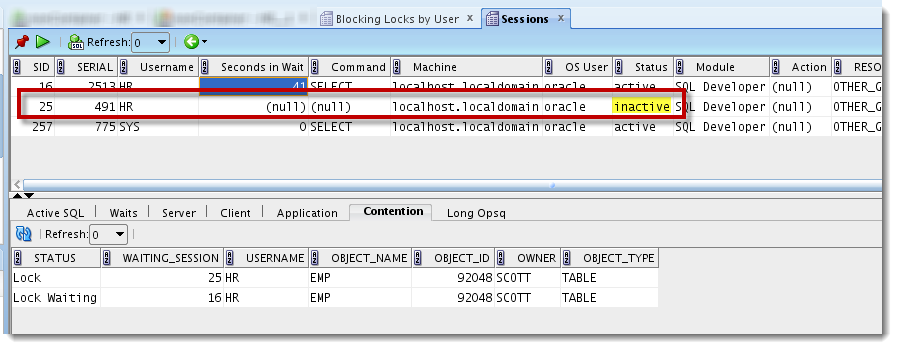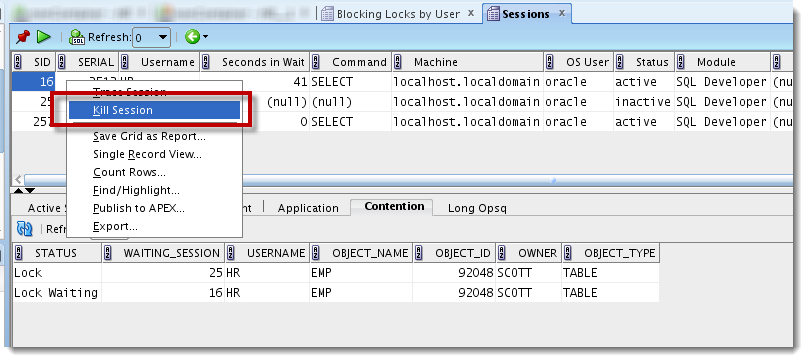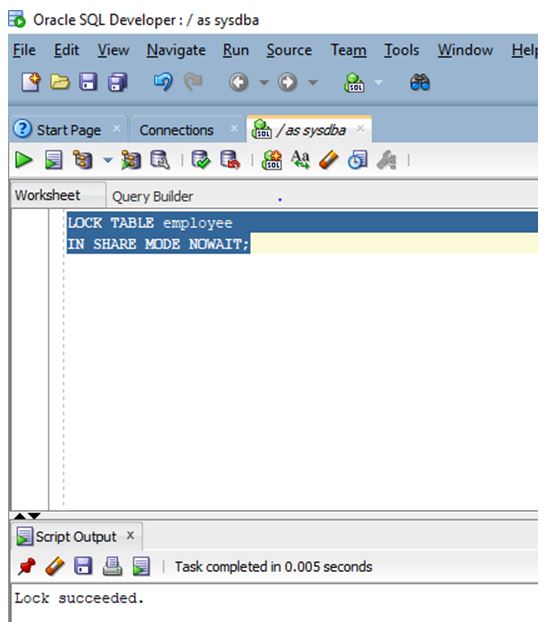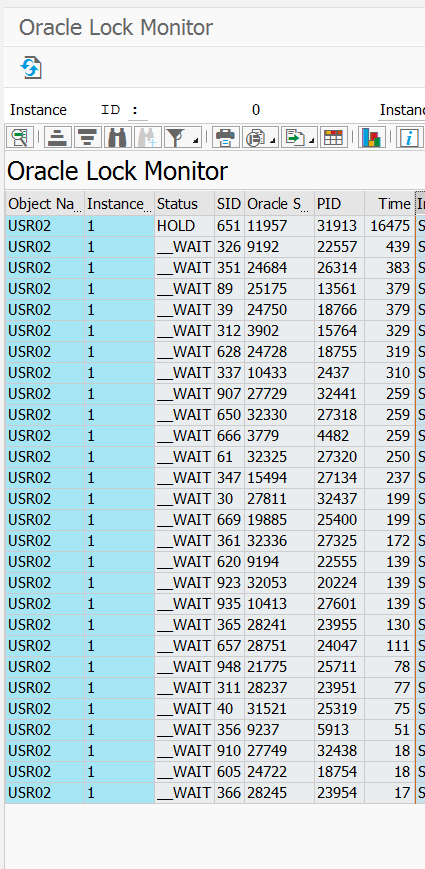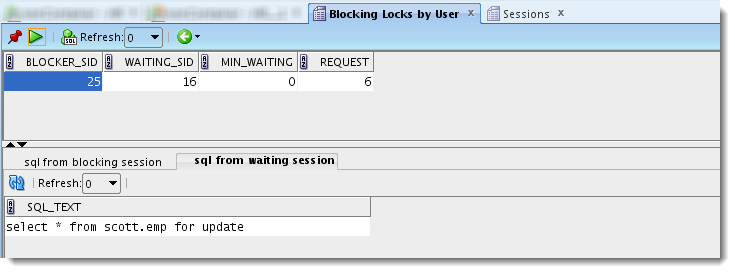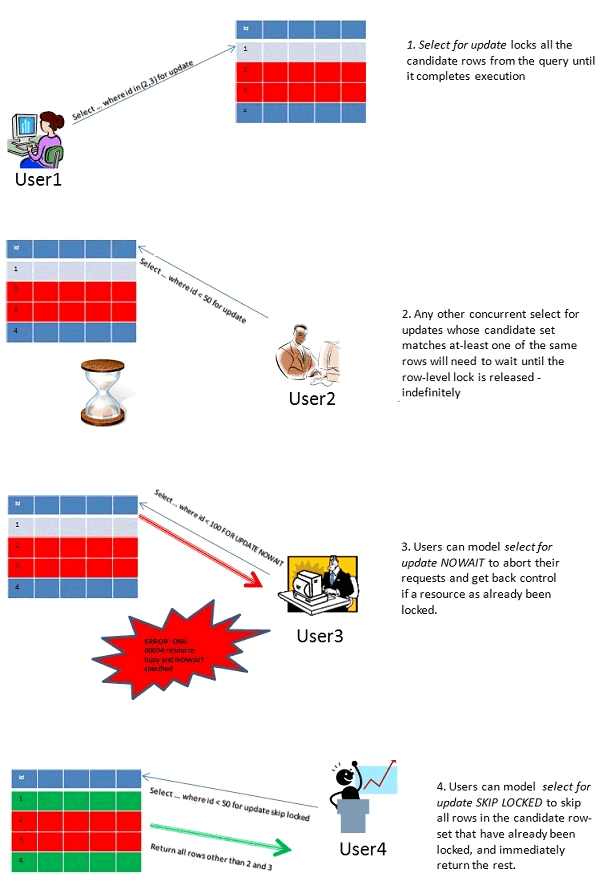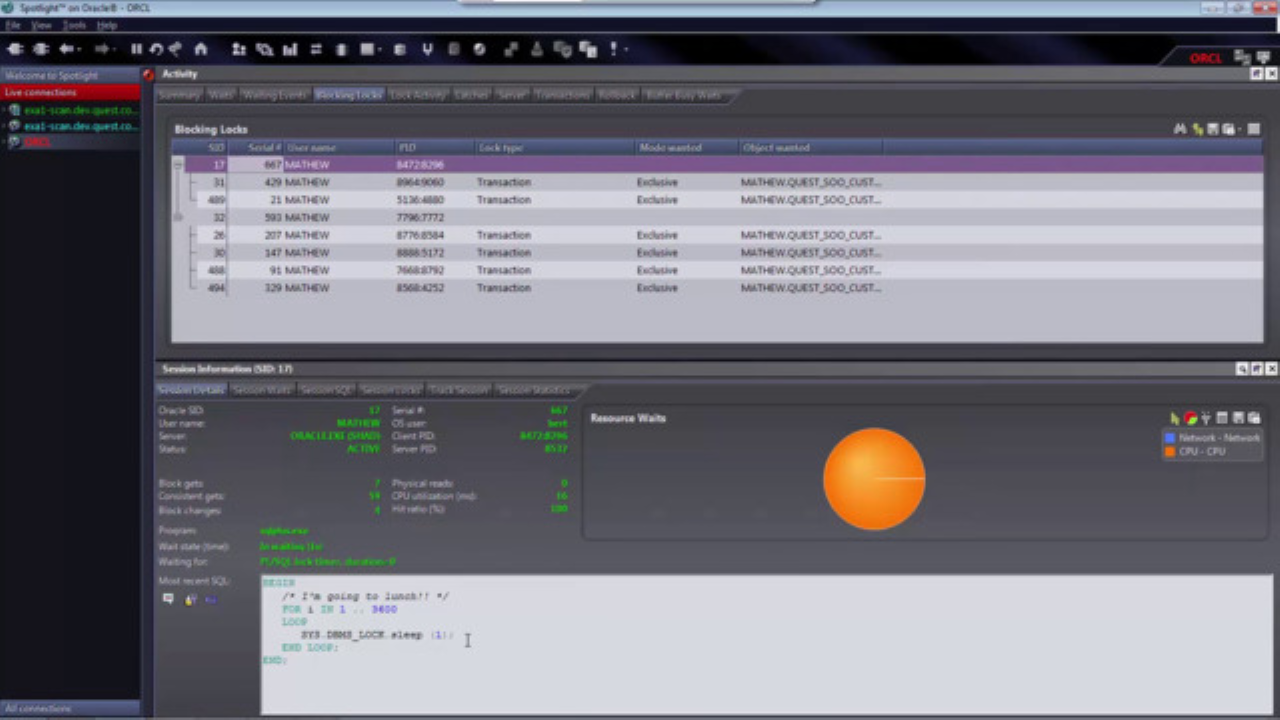Breathtaking Tips About How To Check Locks In Oracle

You can kill any session with.
How to check locks in oracle. (select username from v$session where sid=a.sid) blocker, a.sid, ' is blocking ', (select username. || ' ( sid=' || s1.sid || ' ) is blocking '. Check the lock, blocking & deadlock in oracle database quick way to find out the blocking at instance level:
When data is locked, then that means that another database session can not update that data until the lock. What is a database lock in the context of sql? Select s.sid,s.serial#,s.username from v$session s where s.sid=63;
If you do have any locked ones, then they can be unlocked and/or have their password reset with Below query will help you in providing sessions causing lock in the database. Select * from v$lock where block > 0;
Select the session id and kill the process which is holding the lock on schema user. You can find the locked tables in oracle by querying with following query select c.owner, c.object_name, c.object_type, b.sid, b.serial#, b.status, b.osuser, b.machine from. Select username, account_status from dba_users;
Col session_id head 'sid' form 9999 col object_name head. Select c.owner, c.object_name, c.object_type, b.sid, b.serial#, b.status,. This should be done with the system admin account (such as sys).
The following script can be used in order quickly identify all lock objects within your oracle system. Select c.owner, c.object_name, c.object_type, b.sid, b.serial#, b.status, b.osuser,. It is important to understand how locking works in a concurrent application before continuing with a description of the concurrency mechanisms je makes.
